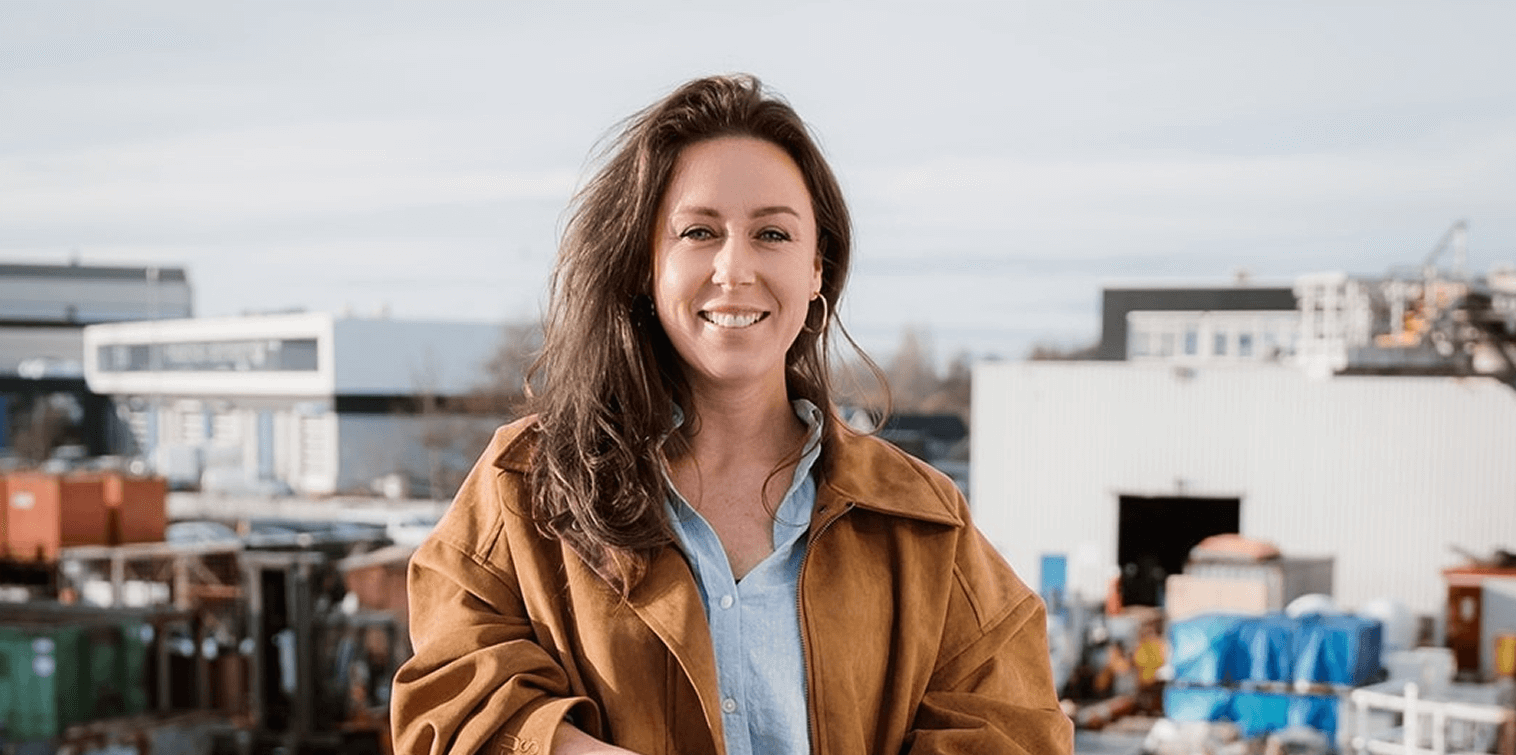How Simwave prepares crews for the fuels of the future
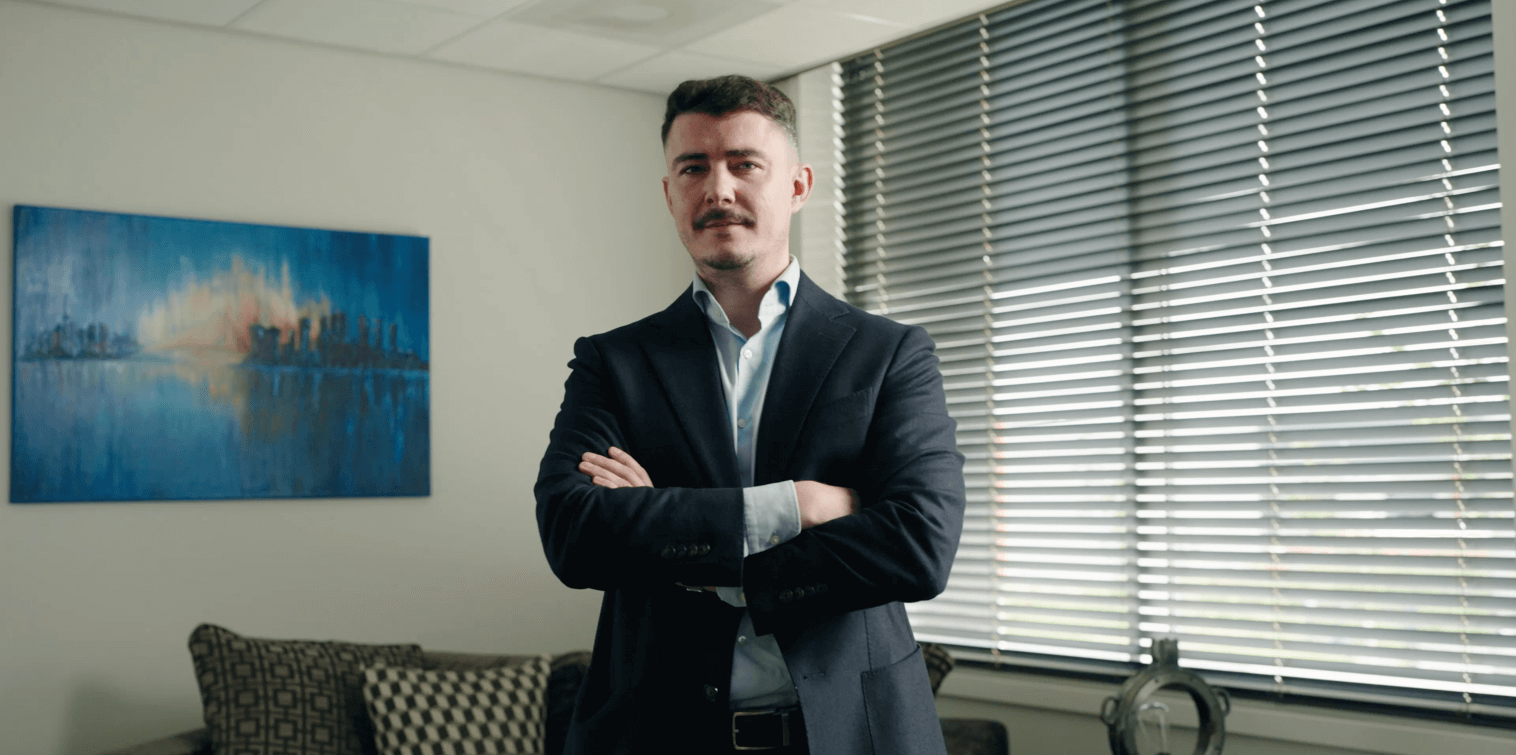
That is exactly where Simwave plays its role. Simwave is a technology driven globally operating maritime training and research provider in Barendrecht, the Netherlands. With more than 60 state-of-the-art simulators, the Simwave team develops custom training programmes, simulations, competence frameworks and assessments for shipping companies worldwide. “We simply can’t say that the crew of today is the crew of tomorrow,” says Chief Commercial Officer Ryan Verhagen. “Every innovation at sea requires matching innovation in training.”
Training for a new era
Founded in 2018, Simwave quickly established itself as a technology-driven partner for cruise lines, shipping companies, offshore contractors and maritime service providers. From nautical and technical simulations to crisis management and resource management training, the company provides tailor-made programmes for its clients, all of which adhere to market- and vessel-specific standards.
In recent years, the focus has increasingly shifted towards the energy transition. LNG has more or less entered mainstream shipping, but fuels such as methanol, ammonia and hydrogen are now on the horizon. Each comes with its own operational limitations, safety protocols, bunkering procedures and technical implications; hence, training is more essential than ever before. “The reality today is that there are no global certifications or uniform training standards for these new fuels,” Ryan explains. “Yet shipowners want to operate safely and crews need to build experience. We are closing that gap.”
MethaNorms: towards safe methanol operations
To tackle this challenge, Simwave is a partner in the MethaNorms project, an initiative under the Dutch Maritime Masterplan led by Fugro and supported by NIM, TNO, MARIN, TU Delft, the Port of Amsterdam, Bureau Veritas and various shipyards and service providers. The project’s goal is to make methanol a safe and viable fuel for shipping.
Simwave’s specific contribution is to develop the competence frameworks, training scenarios and simulator modules that will allow crews to prepare for methanol operations. Over a five-year period, the partners will test methanol as a marine fuel and translate the findings into training programmes, certification pathways and global standards.
“The IMO will eventually adapt mandatory regulations for each alternative fuel, as they all have their own unique characteristics,” says Ryan. “But we can’t wait for regulations to catch up and most vessels have their own unique requirements. By working with industry partners, we create the tools and standards that shipping companies need now to operate their fleet safely and responsibly.”
Beyond regulations: competence management
For Simwave, training is about more than just ticking boxes. The company provides clients with data-driven crew career management systems that track individual crew members’ performance, progression and readiness for promotion. This allows shipping companies to see who a high potential is, who needs extra training and where safety risks may emerge.
“In many companies, officers are promoted too quickly, because of the global shortage of highly skilled, certified and experienced seafarers,” Ryan notes. “Some may have the skills on paper, but not the practical experience, which is extremely important in shipping and offshore operations, and certainly also in cruising, where officers carry the responsibility for thousands of guests. Without serious experience, without practical training…that’s when incidents happen. With structured competence management, we not only help ensure that those who are ready can move up the ladder, but we also help shipping companies establish the correct career progression process for each individual role on board. It’s about quality, safety and trust.”
Rotterdam as a training hub
Simwave’s location in the Rotterdam region is no coincidence. “We are close to Europe’s largest port, where crew changes and training sessions naturally take place,” Ryan explains. “That proximity makes it easy to combine training with operational schedules.”
The company works closely with regional partners, as well as hotels, logistics providers and universities. Visiting clients receive a fully integrated service: from simulator sessions to transport and accommodation.
“That is the difference with generic training providers,” says Verhagen. “We offer tailor-made solutions, built on collaboration with shipping companies based on their unique requirements and with the help of our partners, all embedded in the strongest maritime ecosystem in Europe. Here, collaboration is not just a word. We learn from the market, the market learns from us. Together we make progress.”
The bigger picture: human capital and safety
The shortage of skilled seafarers is one of the sector’s biggest challenges. And, as said, promoting junior officers too fast is not the solution. Simwave’s approach addresses both the shortage and the quality gap by accelerating training, while maintaining safety standards.
“Our simulations can replicate any situation at sea, from bunkering a new fuel to handling wind-assisted propulsion systems,” says Verhagen. “By exposing crews to realistic, complex scenarios and combining these practical lessons with the highest quality of theoretical lessons, we not only prepare them to act safely and effectively on board, we also train them to operate systems in an effective and efficient manner. That keeps fleets operational, prevents accidents and speeds up the energy transition.”
‘Invest in people, not just technology’
For international companies, the Rotterdam cluster provides a gateway to Europe and a partner network that facilitates experimentation, knowledge sharing and scaling up. The energy transition can be seen progressing quite literally, from major businesses building hydrogen production facilities to start-up partnering programmes: “If you bring your ideas and commitment, you will be welcomed. As to the energy transition, this is a human challenge as much as a technical one. Without well-trained crews, office personnel, engineers and inspectors the adoption of new fuels and systems will stall.”
Simwave’s message is clear: invest in people, not just technology. “Technology alone doesn’t keep a vessel safe and operational,” Ryan concludes. “People do. That is why human capital must be at the heart of the energy transition.”
About Simwave
Simwave is a world-leading maritime training and assessment centre based in Barendrecht, near the Port of Rotterdam.
- Facilities: 60+ high-tech bridge, engine room and part task simulators.
- Focus: tailor-made training, assessment and research programmes combined with in-house developed software solutions for shipping companies, offshore operators and maritime service providers.
- Specialisation: crew career management, digital twins, real-life scenario-based simulations, resource management systems, training for alternative fuels handling (LNG, methanol, ammonia, hydrogen).
- Global scope: clients include cruise companies, port pilots, RoRo vessel operators, tanker operators, container liners, and offshore operators worldwide.
- Ecosystem role: partner in the MethaNorms project and other energy transition initiatives under the Dutch Maritime Masterplan. Structural collaborations with other players in the supply chain.
Download our guide
Learn from entrepreneurs who have already grown their business in the Rotterdam region. Download the free PDF for practical advice, valuable contacts and local insights. Ready to take the next step? Discover how Rotterdam can help your business grow.
Shaping sustainable shipping: innovation, people and partnerships in Rotterdam
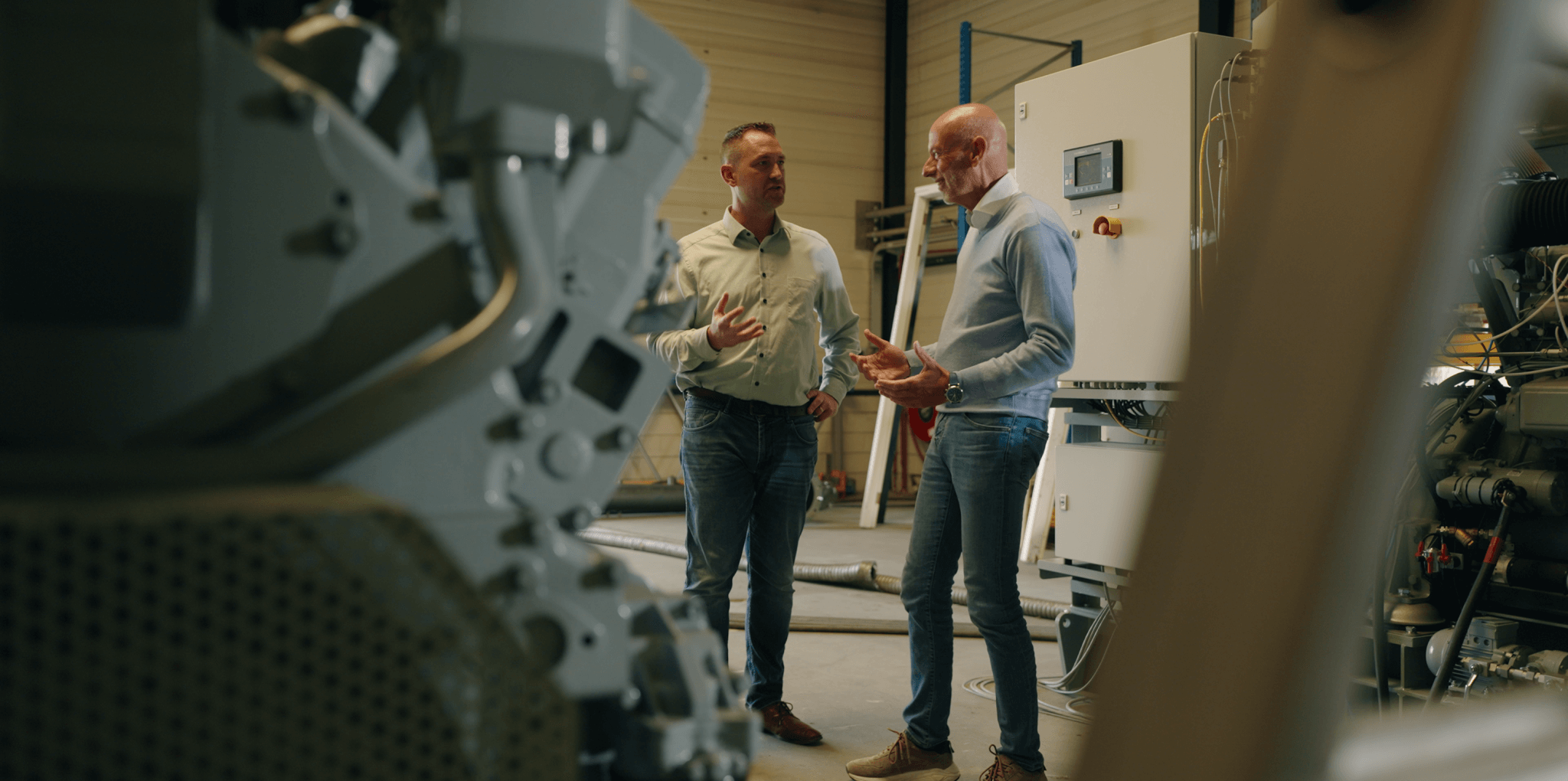

Charting her own course: Heleen Kornet on leadership, legacy and navigating a male dominated maritime world
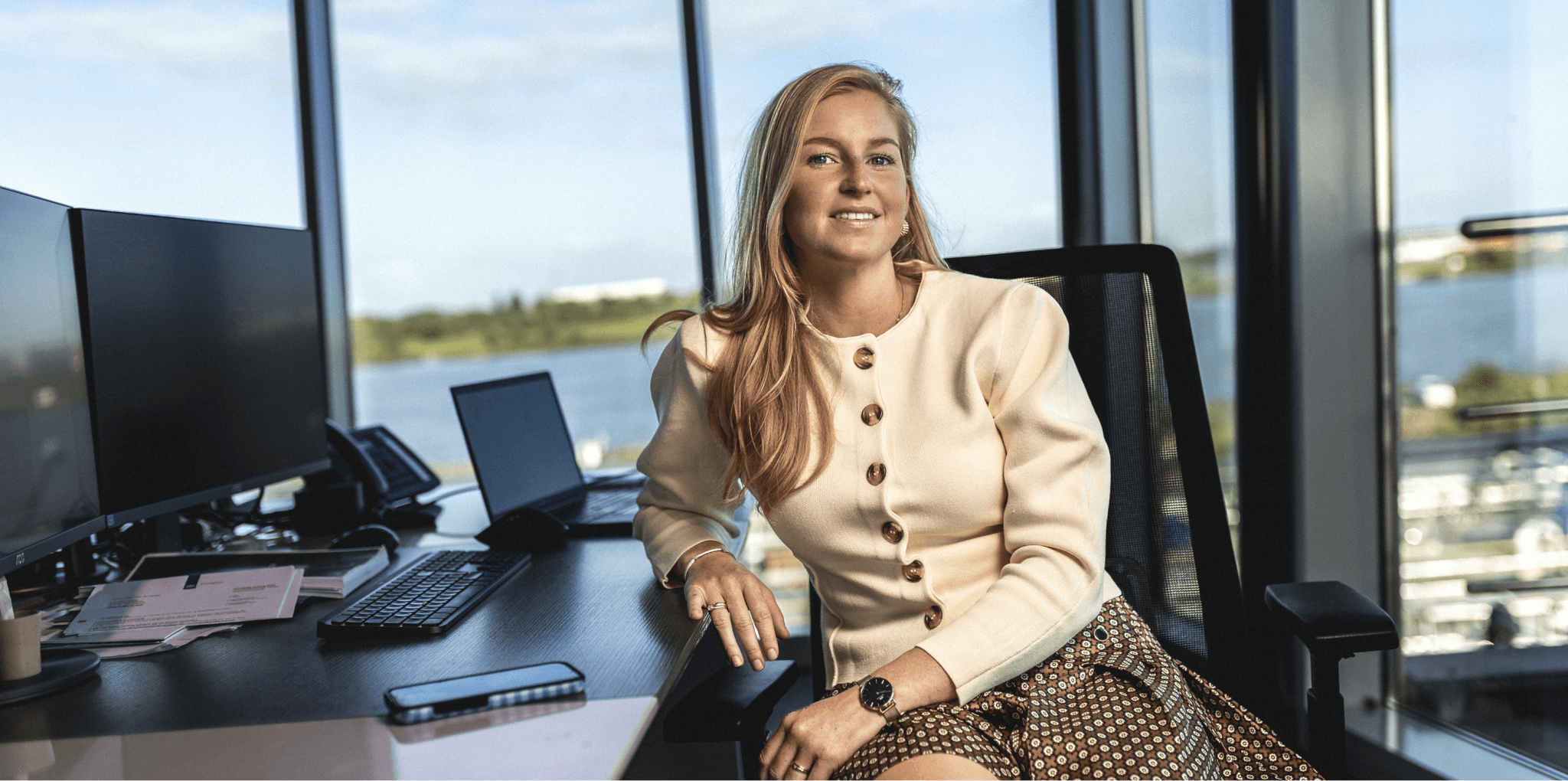

Innovating inland shipping: how Concordia Damen strengthens the maritime ecosystem from Werkendam to Rotterdam
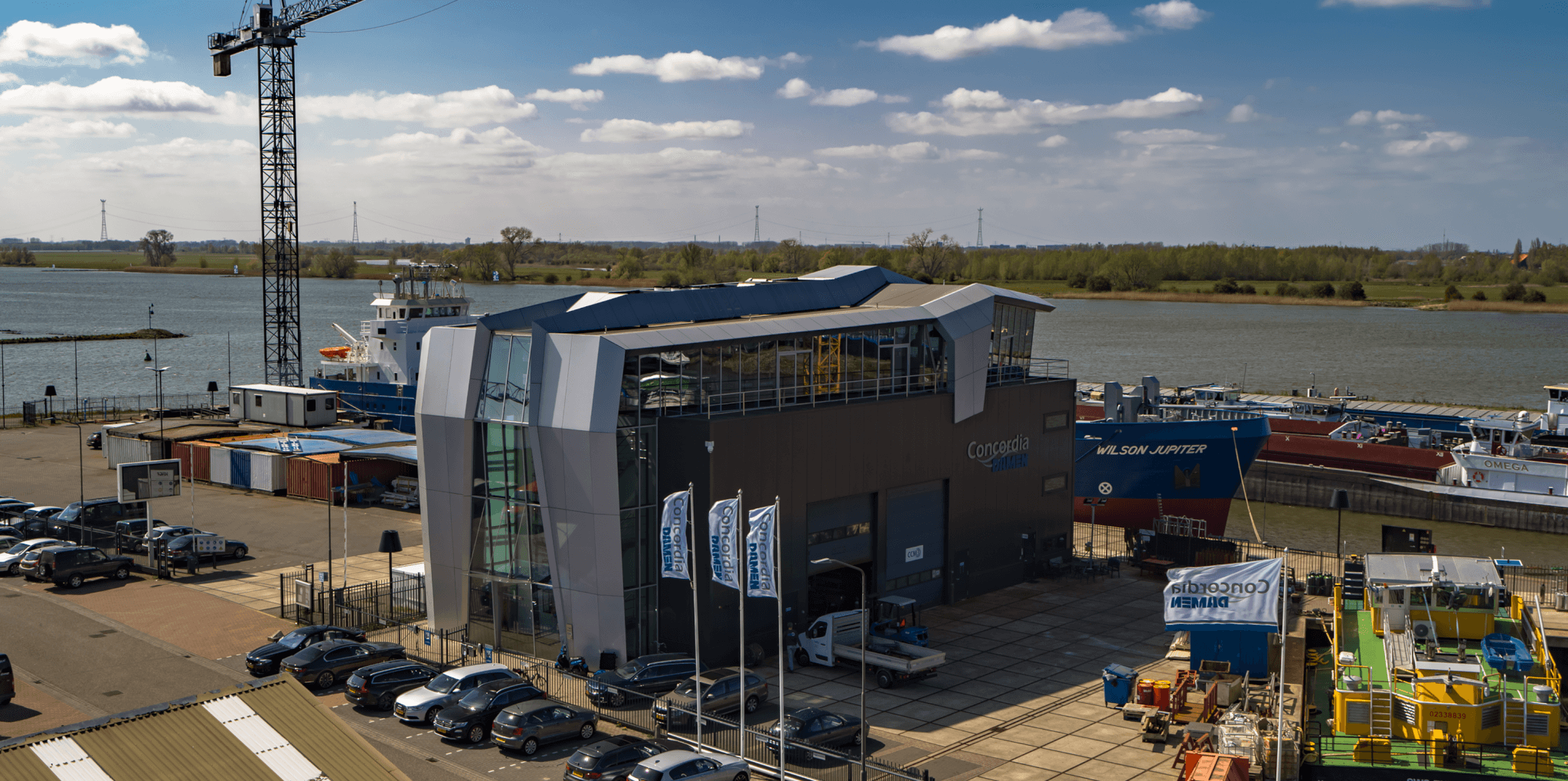

Building smart, specialised vessels: how Holland Shipyards Group turns customer questions into practical innovation
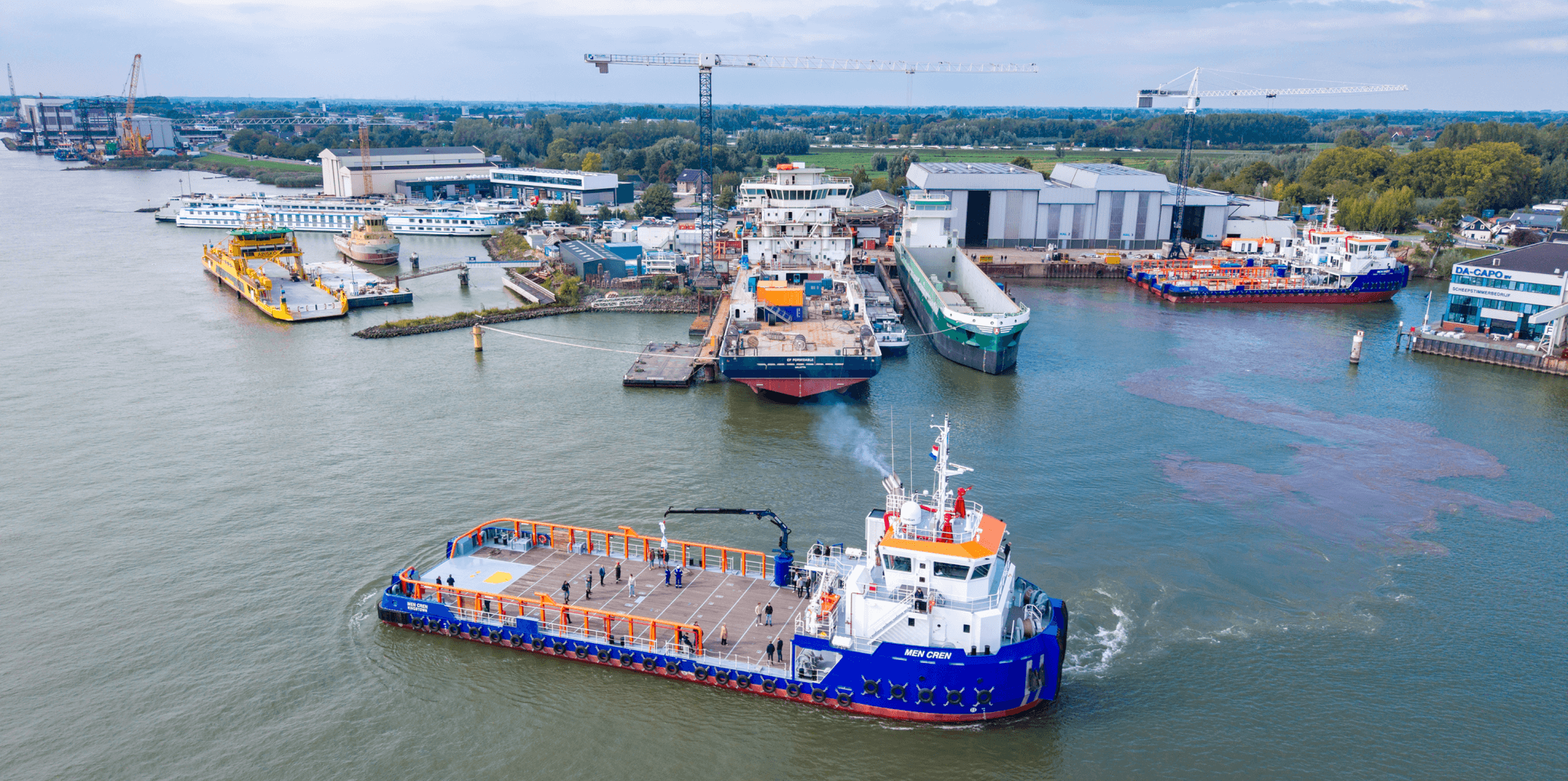

Working with trust and curiosity: Shanna van Berchum on building a career in the maritime industry
